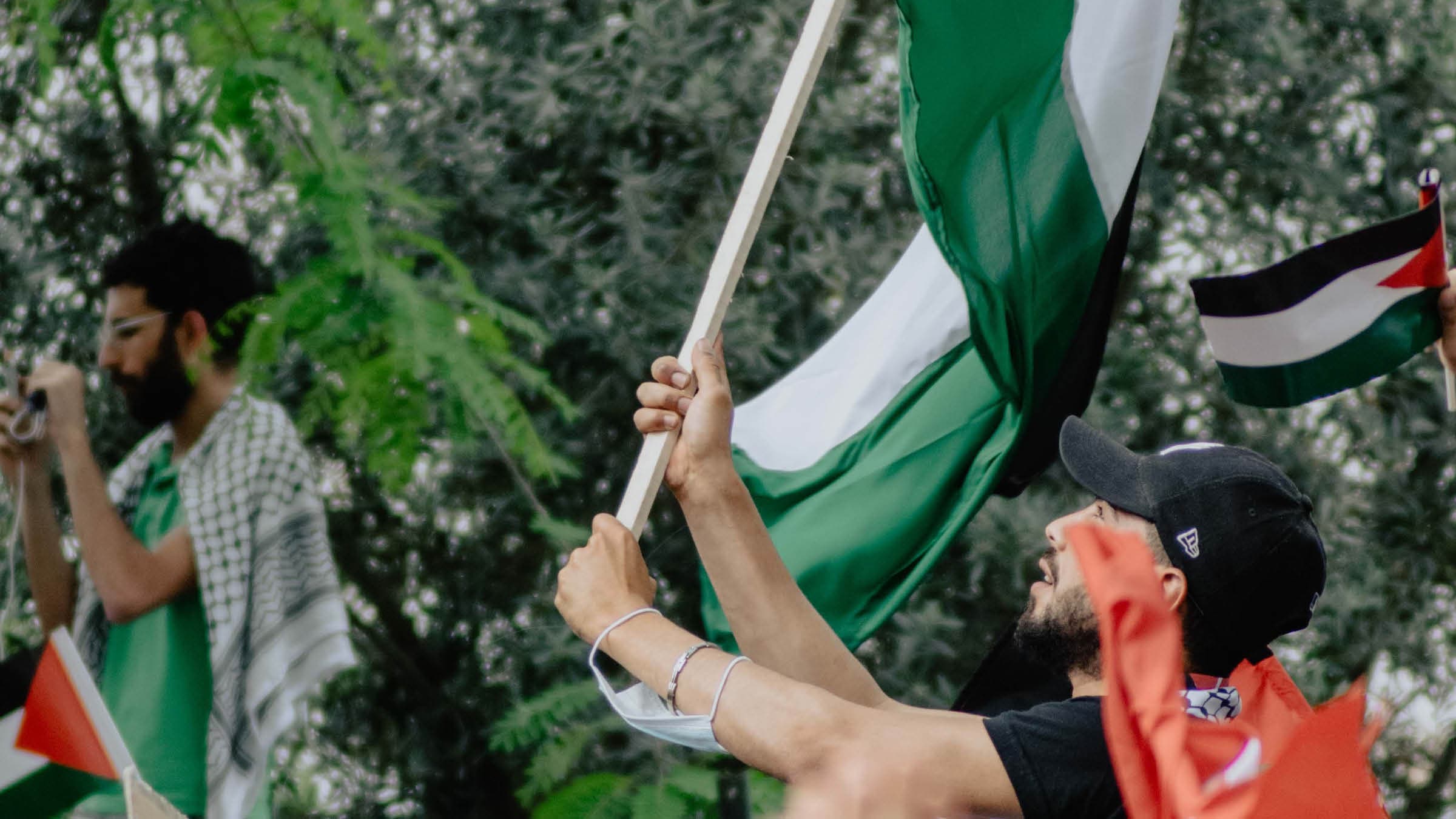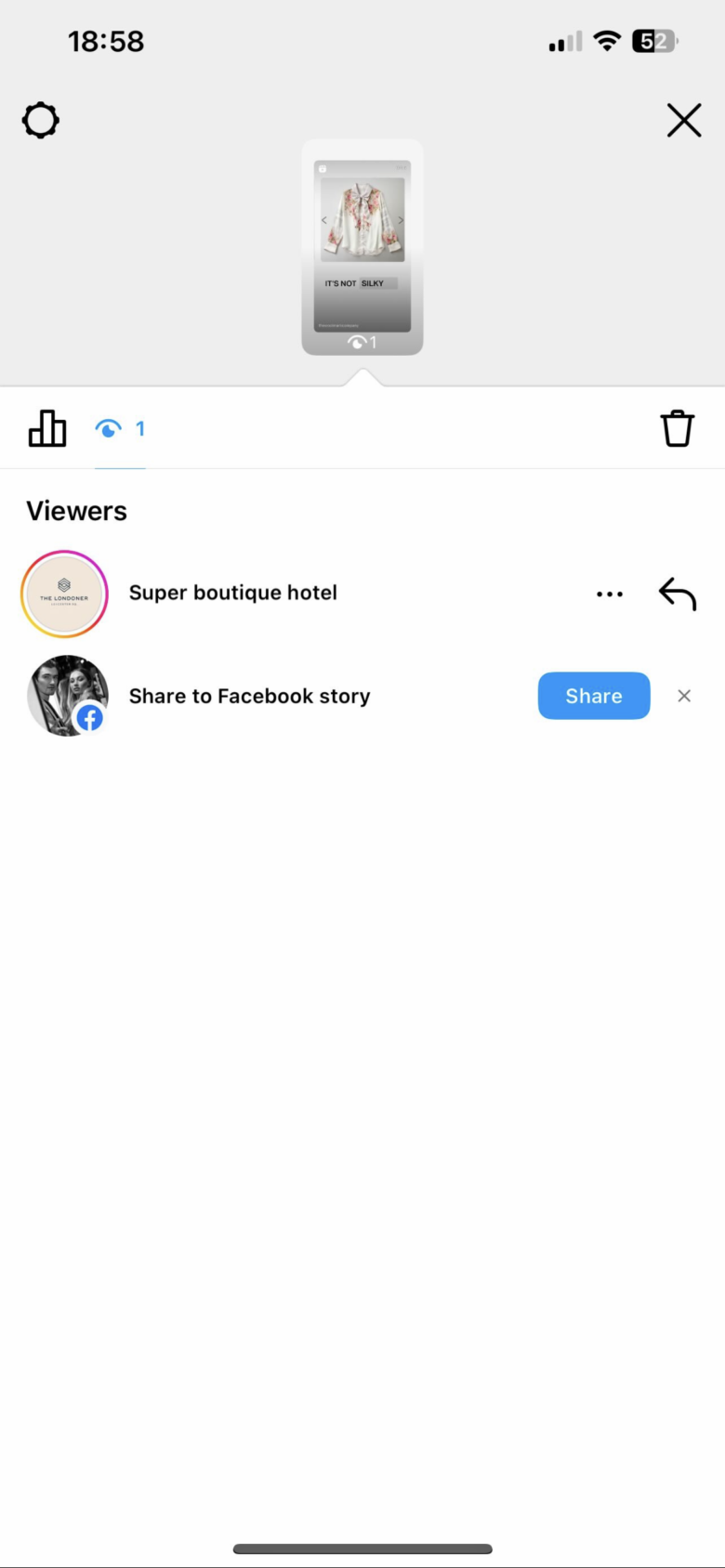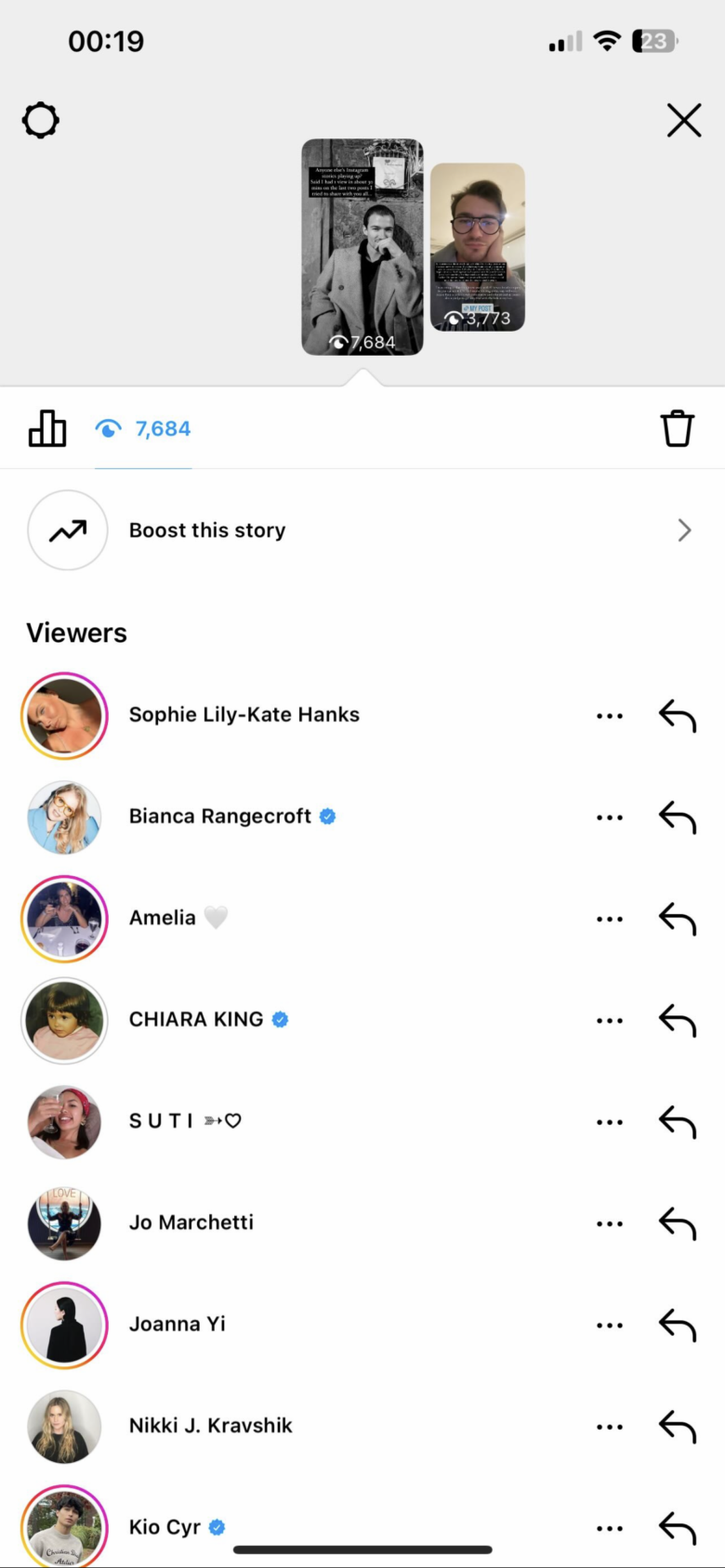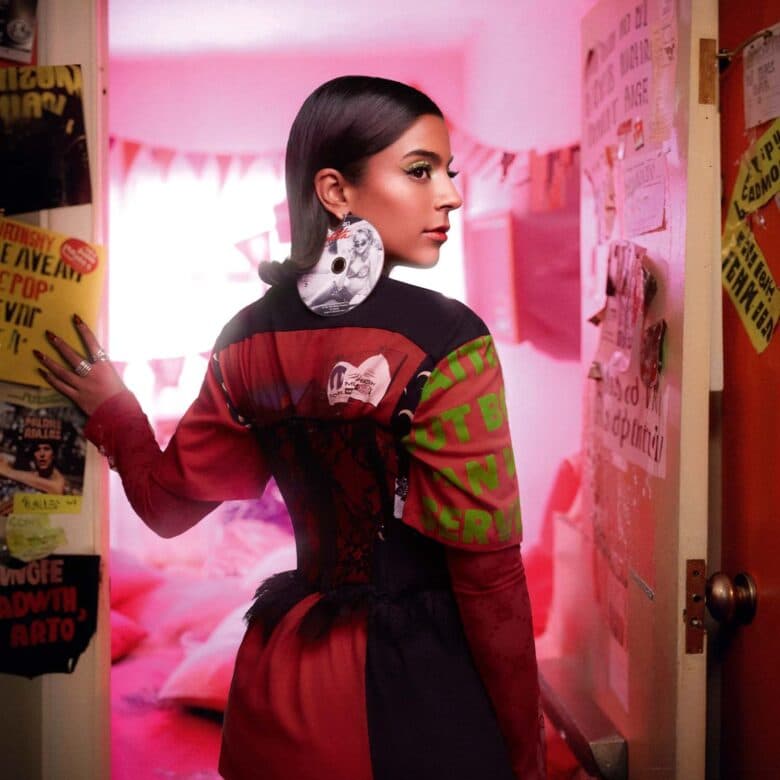Are Meta shadow-banning you for posting “pro-Palestine” content?

As the masses took to social media this past weekend to post about the horrors of the Israel-Hamas war, some users noticed something strange when it came to sharing content that could be construed as “balanced” or more “pro-Palestine” leaning, myself included.
In light of UN experts stating that Gaza is being “strangled” by Israel’s week-long siege and aerial bombardment, I went to share a post from PaliUnited, a Palestinian based social platform. The infographic stated facts; that Israel had given the UN 24 hours to evacuate 1.1 million Palestinians to the south of the strip, and that for the past 16 years, Gaza had been considered an “open air” prison. The views on those Stories, which typically reach 200+ users, plummeted to 15 and stayed that way for three hours. It appeared that my “pro-Palestine” content had resulted in me being temporarily shadow banned by Meta, and I wasn’t alone.
Shahed Ezaydi, a fellow journalist, who covers politics, feminism and social issues, tells HUNGER: “I usually get 150-200 people viewing my Stories, but when I posted about Palestine I got not a single view in six hours. As soon as I removed them and shared a typed post about being shadowbanned and a screenshotted post about Palestine, my reach was back to normal.”
While shadow-banning is not publicly acknowledged by Meta, many users believe it is a prolific practice that restricts their accounts, and reduces their visibility in users’ feeds, Stories, and explore pages, negatively affecting reach. It will typically occur if a user has violated Instagram’s community guidelines or if their content is deemed inappropriate. In this case, it appeared as if sharing content that appeared to be “pro-Palestine” or promoted peace resulted in the restrictions.
Those who do not work in the media, and who aren’t typically outspoken on Middle-Eastern politics were also affected. Brett Staniland, a model and sustainability advocate, who is verified on Meta and has 96K followers, tells me that on Saturday he had re-shared a static carousel post from a reliable source that was urging support for the Palestinian people in Gaza. This post, he said, aligned with his anti-oppression stance and mentioned the “ethnic cleansing” of Palestinians, as well as the relations between the two states over the last few decades. “Once shared, I closed my phone and didn’t check,” he states, “four hours later, it had reached 29 people out of 96,000. I’ve had hundreds of messages of everyone saying the same thing when they share pro-Palestine content.”


But, of course, it’s never straightforward when it comes to social media. For years, we’ve known that the algorithm is designed to ensure that users keep returning; we can be fed polarising content, as oftentimes, it’s the most engaging and can lead us in with posts that elicit emotional responses in order to drive engagement and ultimately profit. Lauren Ezekial is a Jewish freelance journalist, and she says that she has “lots of evidence from Jewish accounts that their posts were also being shadow banned, especially any that were about peace and unity at this time”. While Ezekial clarifies that her posts are not “pro-Palestine” in the current context due to family connections in Israel, she has always advocated for the peace and rights of the Palestinians to live in freedom and dignity. Ezekial adds: “There’s been a massive push on controversial, divisive posts. Maybe this is the nature of the algorithm as these get more engagement, however as it is being played out on social media it appears the moderate voices from both sides are completely lost.”
We reached out to Meta for comment on this purported shadow banning, and at 1:35pm today (Monday), they responded with the following statement: “We identified a bug impacting all Stories that re-shared Reels and Feed posts, meaning they weren’t showing up properly in people’s Stories tray, leading to significantly reduced reach. This bug affected accounts equally around the globe and had nothing to do with the subject matter of the content – and we fixed it as quickly as possible.”
The Meta spokesperson also referenced a post outlining Meta’s ongoing efforts regarding the Israel-Hamas conflict. They say that they “quickly established a special operations centre staffed with experts, including fluent Hebrew and Arabic speakers, to closely monitor and respond to this rapidly evolving situation in real time.” Now, they are continuing to “enforce our policies around Dangerous Organizations and Individuals, Violent and Graphic Content, Hate Speech, Violence and Incitement, Bullying and Harassment, and Coordinating Harm.”
While Meta argues that this was an indiscriminate bug, it is concerning that my story views dramatically increased when I subsequently posted something unrelated to Palestine, like an image of a book. HUNGER’s editorial director, Devinder Bains, experienced the same phenomenon, asserting: “Over the weekend I posted some very balanced content about the Israel-Hamas conflict and received zero views, that’s not a single view, I can’t remember this ever happening before. I checked my sister’s Instagram account where I’m always one of the first people to show up on her Stories and no matter how far across she scrolled, my account would not show. I deleted the posts after a few hours and posted other Palestine-based posts and the same happened again. This is when I started to wonder if this was an attempt to hide my posts because of the nature of the content, and started to hear from others who were experiencing the same, so I posted a very generic picture of my dinner with some food based hashtags, and I had around 500 views in a few hours.”
Now, some platforms advocating for Palestine, such as @hareth_palestine are claiming that content related to the nation’s plight has been labelled as “sensitive” by Instagram, and that this would have to be manually changed by users. We have asked Meta for comment, but at the time of writing, have not yet received a response.
Still, while Meta’s statement focuses solely on Instagram, one of our sources points out that their other sites, like Facebook, are also reportedly curtailing reach on “pro-Palestine content”. The UAE-based journalist, who has requested to remain anonymous, tells us: “Both my public Instagram and private Facebook have been affected. I have been sharing posts from Gaza-based journalists and other Arab voices on my Instagram Stories, and have noticed in the last few days that my views have dropped significantly, to a quarter or less of what my Stories about my lunch or a manicure would get. I’ve had friends outside the media re-share Stories by journalists and have their views drop to single digits.” But even more disturbingly, she continues: “On Facebook, I have been organising with private groups for journalists, connecting editors with Palestinians they can interview or commission for stories. Since then, my account has been restricted twice, initially for one day, then extended for another three days. While social media has been an accessible way to directly view what is happening in Gaza, our ability to amplify is being targeted in a way that seems to affect pro-Palestian voices the most. We cannot be complacent and rely on digital messages to be heard — in person protesting and traditional media sources with factual, verified reporting will be crucial to ending the Israeli regime’s deliberate acts of violence towards Palestinian civilians.”
On Saturday, the American writer and activist, Shaun King, posted on his Instagram account saying that Meta had “threatened to delete my account and has already shadow banned me and limited my features, for sharing the war crimes of Israel”. Noting that he had gone out of his way to be casual, he said that employees had been warned that himself and others could lose their accounts. Comments have now been limited under the post, but King continues to post Stories raising awareness of the ongoing events in Gaza. Meta has not yet issued a comment on the status of King’s account.

